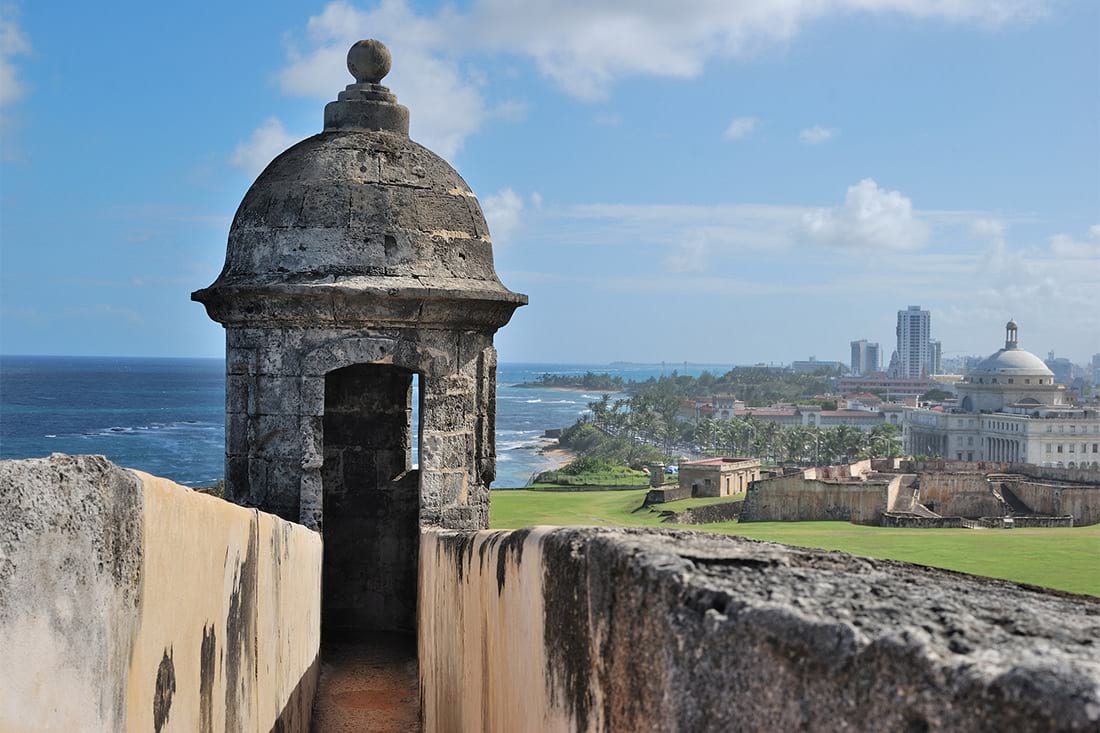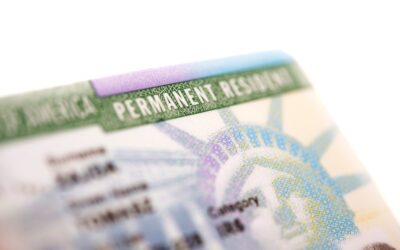Published May 2019, updated July 2020
There is no doubt that Puerto Rico taxes offer incredible incentives to move to the island. To benefit from the tax incentives you have to meet specific requirements though. Just declaring the US territory your new home is not enough. Let’s look at the Puerto Rico tax benefits and how to qualify for them.
This is Part One of our Puerto Rico tax series. Read Part Two here.
US vs Puerto Rico taxes
First of all, thanks to Section 936 Puerto Rico sourced income is excluded from US taxation. Puerto Rico residents only pay PR taxes on their income sourced on the island.
In addition, to attract investment Puerto Rico enacted two tax acts, Act 20 and Act 22. Those two tax acts offer low to no taxes on certain types of income.
- Act 20, Export Services Act: 4% corporate tax rate for Puerto Rico services companies
- Act 22, Individual Investors Act: 0% capital gain tax for Puerto Rico residents
More recently, these two acts were updated and combined in a new law called Act 60. However, the rates for corporate taxes and capital gains tax remain the same.
Act 60 could be perfect for high net worth entrepreneurs with service businesses and for traders with high capital gains including crypto gains.
Puerto Rico Act 60 – 4% corporate tax rate for eligible businesses
The incredibly low 4% corporate tax rate stipulated by Act 60 applies only to businesses that perform eligible services on the island to customers and clients outside the island.
That means the service has to be exported to non-PR individuals or foreign companies that have no nexus with Puerto Rico. The service cannot be related to a trade, business or other activity on the island.
Act 60 eligible businesses
To benefit from the low 4% corporate tax rate the business must meet certain requirements. The key is that the business has to provide a service. That means that manufacturing or other non-service businesses don’t qualify.
Eligible services include but are not limited to:
- Research and development
- Software development
- Consulting and advisory services
- Professional services such as legal, tax and accounting services
- Investment banking and other financial services
- Graphic design and other graphic and commercial art services
- Project management, engineering, and architectural services
- Educational and training services
- Shared services, such as accounting, finance, taxes, auditing, marketing, engineering, quality control, human resources, communications, electronic data processing, and other centralized management services
- Hospital, laboratory, and medical tourism
- Data processing centers
- Call centers
- Corporate headquarters
- Trading companies dedicated to international trading
- Commercial and mercantile distribution of products manufactured in Puerto Rico to other jurisdictions
- Assembly, bottling and packaging operations of products to be exported
Other requirements to qualify for the 4% corporate tax rate in Puerto Rico
Besides having an eligible business, you must meet other key requirements:
Be a Puerto Rico Resident
The low tax rate only applies to Puerto Rico sourced income, so you have to actually live in Puerto Rico. If you run the business partially from the US, then you could be engaged in a US trade or business for US tax purposes. This would trigger US income taxes.
Have a local Puerto Rico employee
Years ago, the company needed to have a minimum number of 5 employees, which then changed to one employee. But now, only companies with $3 million or more in revenue must have one employee. The employee must have full social security benefits and pay taxes in Puerto Rico.
How the 2017 US tax reform impacted PR companies
Prior to the 2017 Tax Cuts and Jobs Act, you could have a Puerto Rico company, but not be resident there. You would have paid 4% tax in PR and defer US tax on retained earnings. Unfortunately, this does not work anymore.
The new tax law eliminated tax deferral on foreign retained earnings. This means that if you are not a PR resident, you would pay US tax on the business income. So for non-PR residents, there is no tax incentive for having a Puerto Rico company.
Puerto Rico Act 60 – 0% tax on capital gains and distributions
Tax-free capital gains are a big draw for investors and traders. However, this part of Puerto Rico Act 60 applies only to Puerto Rico sourced capital gains and passive income. To qualify you must be a bona fide resident of Puerto Rico for an entire tax year.
Furthermore, you must make a mandatory annual donation of $10,000 and buy a home in Puerto Rico.
Puerto Rico bona fide resident requirements
To be a bona fide resident of Puerto Rico you must:
- Meet the presence test,
- Do not have a tax home outside Puerto Rico, and
- Do not have a closer connection to the United States or to a foreign country than to Puerto Rico.
How to meet the presence test
Being physically present in Puerto Rico, for at least 183 days during the tax year qualifies you as Puerto Rico resident. Presence means you had your feet on the ground at any point during the day
However, there is some leeway. IRS Code Sec 937 provides additional guidance for bona fide residence status. Specifically, you cannot have a tax home outside of Puerto Rico during the tax year and you cannot have a closer connection to the US or any foreign country.
This means that you could spend less than 183 days in Puerto Rico as long as you don’t spend more time in the US, or any other country, than you spend in Puerto Rico. Be aware that you then still must meet one of the following requirements:
- Be present in Puerto Rico for at least 549 days during the 3-year period that includes the current tax year and the 2 tax years immediately prior. During each of those 3 years, you must be present in Puerto Rico for at least 60 days.
- Not spend more than 90 days during the tax year in the United States.
- Be present for more days in Puerto Rico than in the United States during the tax year and earned no more than $3,000 income in the United States, i.e. income from salary, wages, professional fees.
- Have no significant connection to the United States during the tax year. Significant connections include when your spouse or child lives in the US, or you have a permanent home there (excluding rental property) or are registered to vote.
Puerto Rico taxes on qualified capital gains and dividend or interest income
The zero percent tax rate only applies to income realized or accrued as a Puerto Rico resident.
Any capital gain or passive income accrued prior to becoming a resident is taxed in Puerto Rico at the prevailing tax rate if the gain is recognized within 10 years of becoming a resident. After 10 years, it is taxed at 5%.
This means that moving to Puerto Rico will not shield you from paying taxes on capital gains or passive income earned before becoming a resident. No matter if you want to exit your company with a big distribution or have amassed huge capital gains, a one-year residency in Puerto Rico will not make any difference in your US tax burden.
Limitations of Puerto Rico tax incentives
As you see, Puerto Rico tax incentives come with specific requirements and limitations. They are not a quick tax savings scheme. Still, for people who want to live on the island, Puerto Rico taxes offer an incredible deal.
The next post in our Puerto Rico series we discuss who will benefit most from moving to Puerto Rico and alternative options to tax-optimize your business. (Read Part Two of the series here.)
If you are considering Puerto Rico as a tax savings strategy book a call with our structuring expert. He will help you evaluate if this is the best move or if other offshore structuring offers you better tax optimization while maintaining more flexibility.





